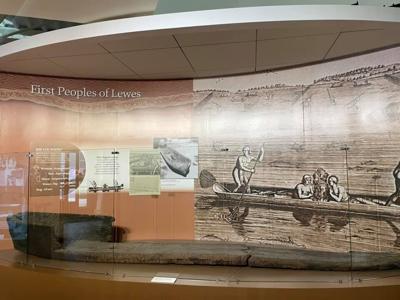SUSSEX, Del. - Monday Oct. 11 was Columbus Day or as some now refer to the holiday as Indigenous People's Day.
Last Friday, President Biden signed the first presidential proclamation declaring Oct. 11 as indigenous people's day. Columbus day is celebrated to honor the anniversary of the explorer Christopher Columbus's arrival to the America's. However, due to Columbus's behavior and treatment to the indigenous people upon his arrival, many people do not think the man should be celebrated.
Kyle Harmon, who is a member of the Nanticoke Tribe in Delaware, said he never acknowledged Columbus Day until it became Indigenous People's Day this year.
"I dont think there should be a holiday named after someone who was detrimental in the genocide and ya know overall treatment of indigenous people," Harmon said.
"I think it is important for all indigenous or native people to reclaim our history and change the narrative. "To be able to celebrate indigenous peoples day, were kind of turning a negative into a positive."
The state of Delaware does not observe either Columbus Day or Indigenous People's Day.
"It wasn't the best relationship between the state and the indigenous communities throughout the state of Delaware," Harmon said. "So, ya know if we could get this recognized, we can begin to have those conversations."
Harmon told WBOC he hopes Delaware will eventually consider Indigenous People's Day as a statewide holiday.
Some people in Delaware believe we shouldn't necessarily get rid of Columbus Day.
"It should be remembered," Marco Salaverria said, director of education at the Lewes Historical Society. "It's an era in history. Children are taught from the youngest that in 1492 Columbus sailed the ocean blue. But that's not it. That's not where the story should end. It revolutionized the country that we honor."
Click here to read President's Biden Proclamation on Indigenous People's Day.


